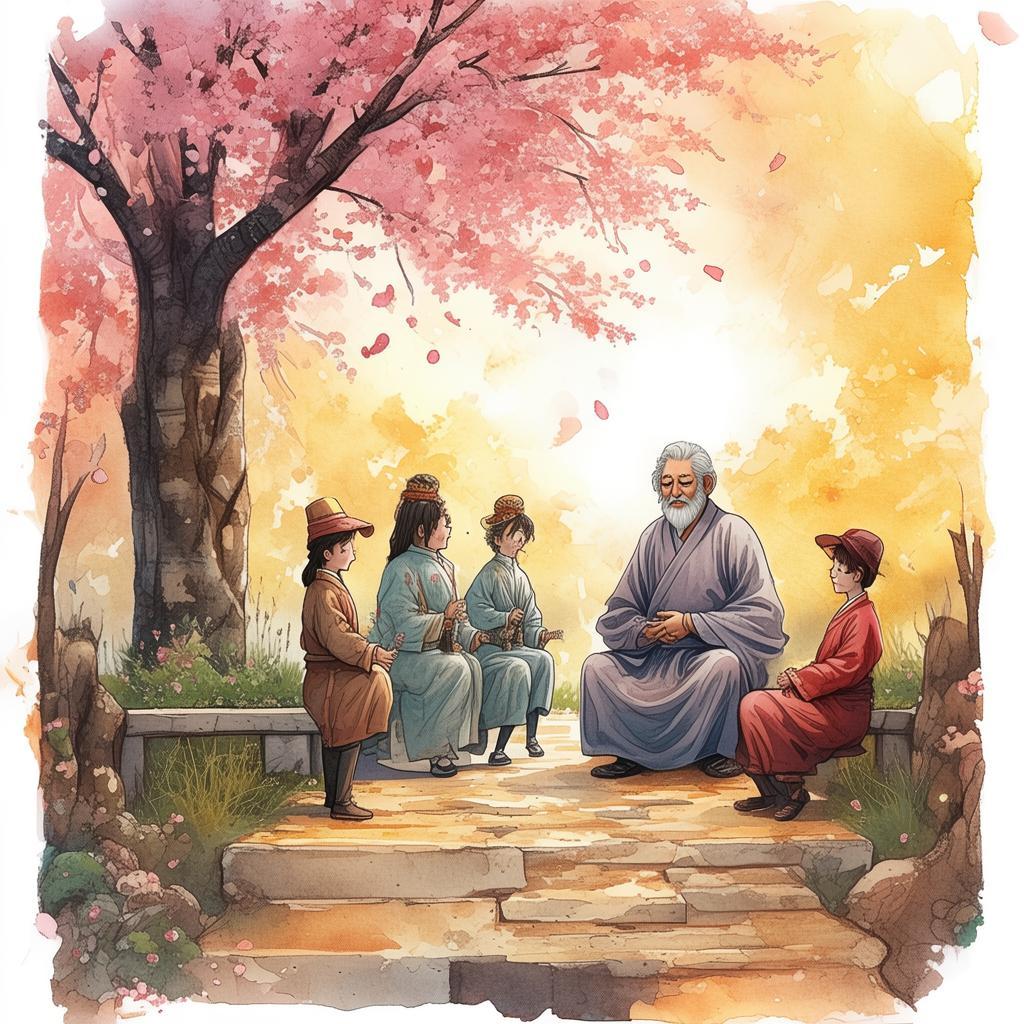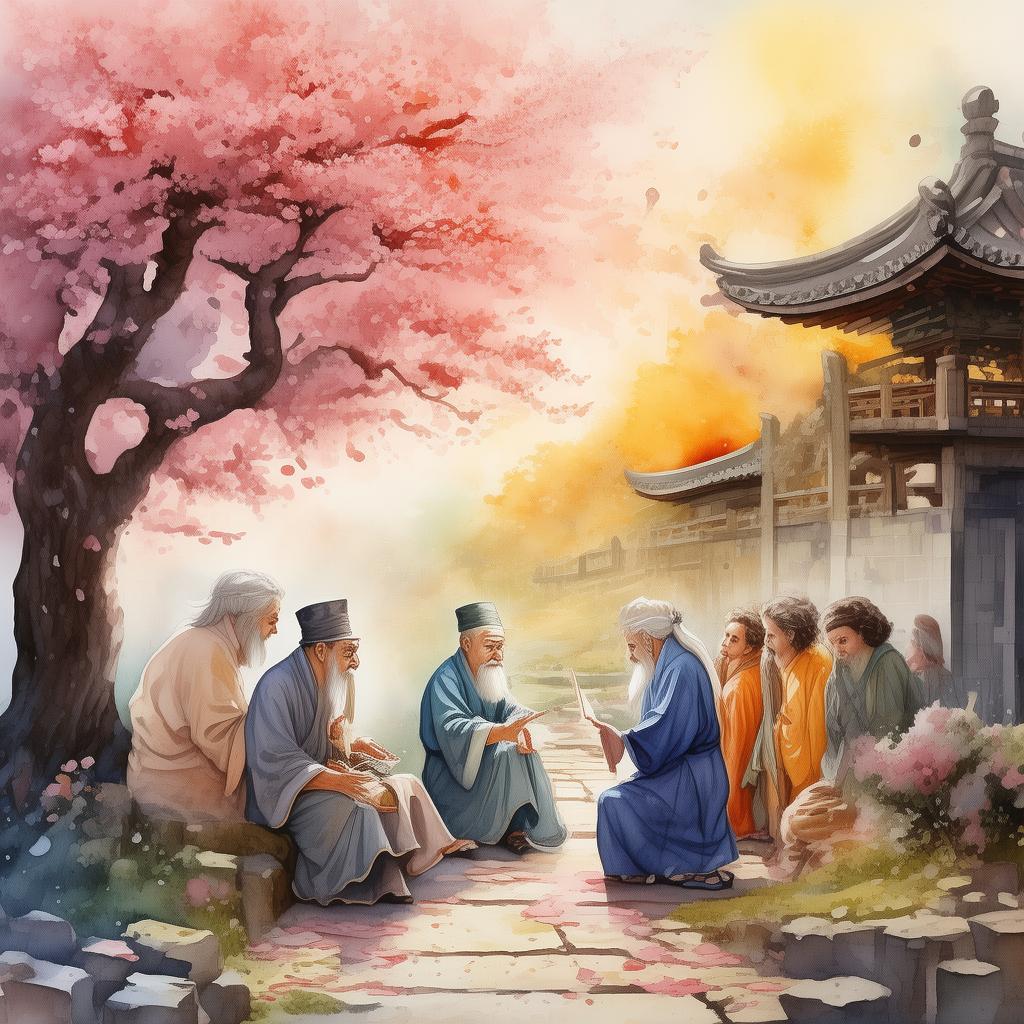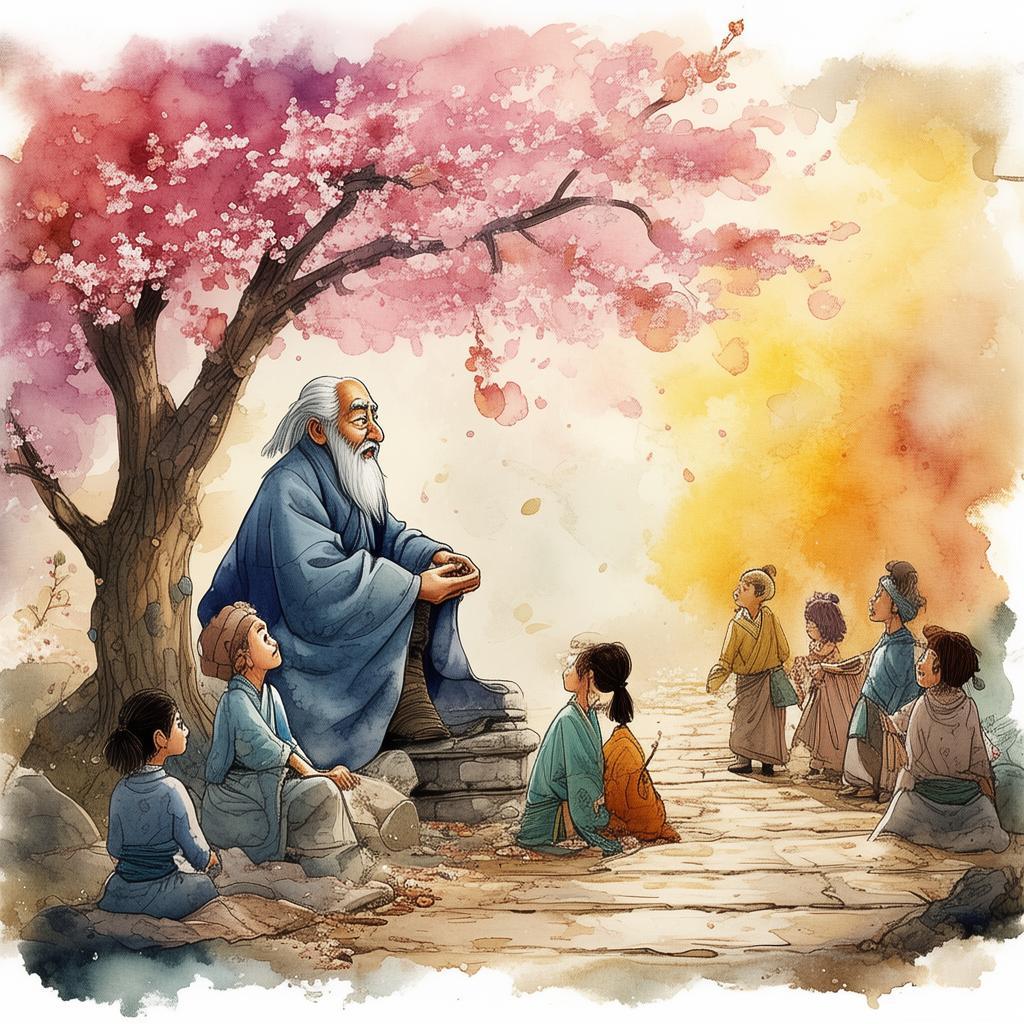Whispers of the Monastery: The Sin of a Saint
In the heart of a lush, mist-shrouded valley, there stood the ancient and serene monastery of Mount Jing. The monks lived a life of quiet contemplation and devotion, their souls seeking enlightenment and peace. Among them was a monk named Chan, whose presence was marked by a gentle melancholy and an air of serene wisdom.
Chan was revered by the other monks for his piety and his deep understanding of the Buddhist teachings. He was known as the "Sinless Monk," for he was believed to have never transgressed any of the precepts. However, within the walls of the monastery, there existed a hidden truth that even the most observant of the brothers had overlooked.
One evening, as the last rays of the sun cast a golden glow through the windows of the main hall, Chan found himself alone. The other monks had retired to their cells, and the silence was profound. It was then that he heard it—a whisper, faint but insistent, echoing in the depths of his soul.
"Chan, you have sinned," the voice was a whisper, almost a breath of wind, but it cut through the silence with the clarity of a bell. Chan's heart raced. The whisper grew louder, more insistent. "Your sin is great, and you must atone."
Chan tried to shake off the feeling, but the whisper persisted, a persistent shadow on the edge of his mind. It was then that he remembered the night of the festival, when he had seen a vision, a vision that would change everything. In his dream, he had seen a child, crying and alone, in the midst of a crowd of laughing monks. The child had called out to him, imploring him for help, but he had turned away, unable to bear the child's pain.
The whisper grew louder. "You turned your back on a child in need. That act of apathy is your sin."
Chan's mind raced with confusion and guilt. How could this be? He was the Sinless Monk, a paragon of virtue. But the whisper persisted, driving him deeper into a well of self-doubt.
The next morning, as the monks gathered for morning prayers, Chan found himself unable to join them. He remained in his cell, the weight of his secret pressing down upon him. The other monks were puzzled by his absence, but none dared to inquire too closely.

It was then that the whispers grew stronger, more insistent. They became a constant companion, a chorus of voices that would not be ignored. "You must atone," they demanded, "you must make amends."
Chan realized that he could no longer run from his sin. He must face it, confront it, and find a way to atone for it. With a heavy heart, he began to search for the child he had seen in his dream.
Days turned into weeks as Chan searched the monastery and the surrounding valley. He questioned every monk and villager, seeking the child who needed his help. Each person he spoke to, he saw the reflection of his own sin in their eyes. They had witnessed the child's despair, had seen the monk who had turned away, and now they too felt the burden of guilt.
Finally, in the depths of winter, as the snow began to fall, Chan discovered the child. He was living in a small, dilapidated shed at the edge of the valley, his eyes hollow with hunger and despair. The child had been left there by his parents, who could no longer bear the poverty and despair that surrounded them.
Chan approached the child, his heart aching with remorse. "I am the monk who saw you that night," he said, his voice trembling with emotion. "I turned my back on you, and I am here to make amends."
The child's eyes widened with surprise and hope. "You came back for me?" he asked, his voice barely a whisper.
Chan nodded, his face contorting with sorrow. "I did not see you that night. I saw you in a dream, and I am here to make it right."
The child reached out, taking Chan's hand. "You don't have to make it right. You just have to be here with me."
In that moment, Chan understood the depth of his sin. He had seen the child in his dream, but he had not acted. Now, he had the chance to make amends, not just for the child, but for himself.
Together, they built a small shelter, and Chan spent every day with the child, teaching him the ways of the monks, the teachings of Buddha. In time, the child's spirit began to heal, and with it, Chan's own soul.
The monks of Mount Jing learned of Chan's actions, and their hearts were filled with a mixture of awe and relief. They had known him as the Sinless Monk, but now they saw the true depth of his humanity.
Chan's journey of redemption had not been easy, but it had been transformative. He had faced his sin, confronted his own weaknesses, and found a way to make amends. In the end, it was not just the child who was saved, but Chan himself.
The whispers that had haunted him for so long now faded into the distance, replaced by a sense of peace and fulfillment. Chan had found his path, and with it, the true meaning of the Buddhist teachings.
As the snow melted and the spring rains brought new life to the valley, Chan and the child continued their journey. They walked together, their spirits light and their hearts full of hope. For Chan, the journey had not ended, but it had just begun. He had found the strength to face his sin, and now he would walk the path of redemption, forever changed by the experience.
✨ Original Statement ✨
All articles published on this website (including but not limited to text, images, videos, and other content) are original or authorized for reposting and are protected by relevant laws. Without the explicit written permission of this website, no individual or organization may copy, modify, repost, or use the content for commercial purposes.
If you need to quote or cooperate, please contact this site for authorization. We reserve the right to pursue legal responsibility for any unauthorized use.
Hereby declared.









